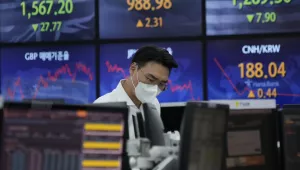The possibility that some Gulf states, particularly the United Arab Emirates, might abandon their long-time pegs to the dollar has been getting increasing attention recently (for example, from Feldstein and, especially, Setser). It makes sense. The combination of high oil prices, rapid growth, a tightly fixed exchange rate, and the big depreciation of the dollar against other currencies (especially the euro, important for Gulf imports) was always going to be a recipe for strong money inflows and inflation in these countries. The economic dynamism — most striking in Dubai – is admirable and fascinating as a longer term phenomenon, but also now clearly shows signs of overheating. Indeed inflation has risen alarmingly, as predicted. Among other ill effects, it is producing unrest among immigrant workers. An appreciation of the dirham and riyal is the obvious solution.
Most often discussed as an alternative to the dollar peg is a peg to a basket of major currencies. This would be an improvement. Kuwait, for example, made this switch a year ago.
But a basket peg does not address the fact that when oil prices rise generally (not just against the dollar), as they have in recent years, monetary policy is constrained to be looser than it should be. Similarly, when oil prices fall generally (not just against the dollar), as they did in the 1990s, monetary policy is constrained to be tighter than it should be. A floating exchange rate regime is the traditional alternative, on the theory that the currency would then automatically appreciate when oil prices rise and depreciate when they fall, thus accommodating the terms of trade shocks. But there are serious disadvantages to small open countries floating, such as the loss of a nominal anchor for monetary policy.
Today's reigning orthodoxy is to add an inflation target as the new nominal anchor. But this doesn't solve the problem, if the targeted price index is the CPI, which gives little weight to oil, the biggest sector in production and exports.
I believe that a better solution would be to include the price of oil in the basket of currencies to which the Gulf currencies would peg. I have laid out the case elsewhere (including also for the case of Iraq). I call the proposal PEP, for Peg the Export Price. I was pleased to see that the FT mentioned this option approvingly yesterday (“Dollar-pegged Out,” July 7):
"The Gulf needs to peg to something. A first step (after revaluation) would be to peg to a basket of currencies that included the euro and the yen. A bolder step would be to include the price of oil in that basket, so that currencies would appreciate when oil is strong, and depreciate when it is weak."
If you wish to post comments please go to the RGE version.
Frankel, Jeffrey. “UAE and Other Gulf Countries Urged to Switch Currency Peg from the Dollar to a Basket That Includes Oil.” July 8, 2008



